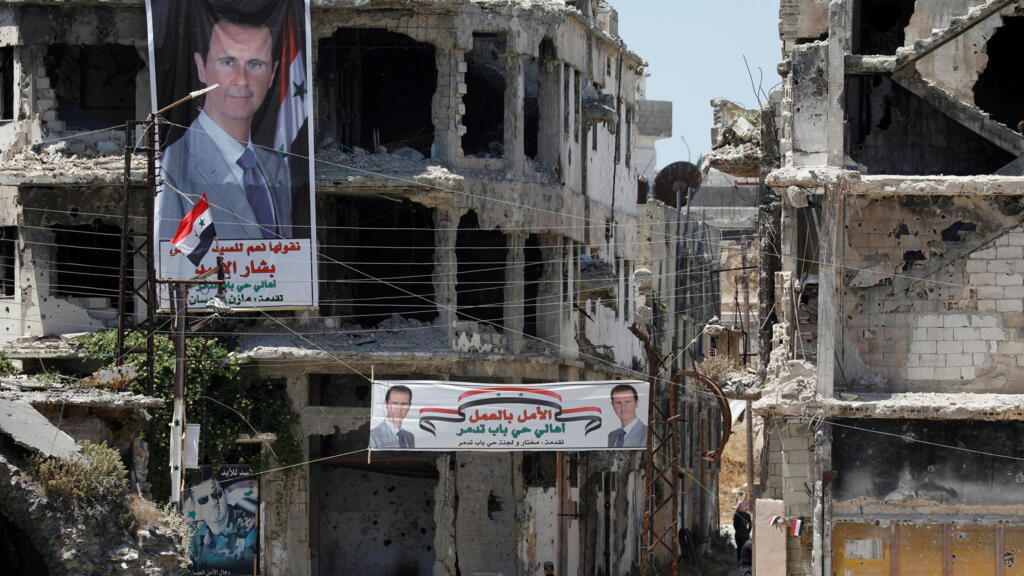
French journalist Edith Bouvier has welcomed arrest warrants issued by Paris for Syria’s ousted president Bashar al-Assad and six of his senior officials, more than a decade after a bombing in Homs killed two of her colleagues and left her badly injured.
“It’s the first step toward the end of a vile impunity,” said Bouvier, who was trapped in a makeshift media centre in the city on 22 February, 2012 when shells struck. “It was long, but we are finally getting there, it’s wonderful.”
The French warrants were signed on 19 August by investigating judges from the Paris court’s crimes against humanity unit, but the decision only became public on Tuesday.
They target Assad and his closest allies for complicity in crimes against humanity and war crimes, following a 13-year investigation.
'Crime against humanity'
The decision is seen as a breakthrough in recognising that attacks on journalists can constitute crimes against humanity.
“It’s a crime against humanity that has been recognised, and it’s a crime against humanity against journalists,” Bouvier told RFI.
Lawyers working on the case stressed its importance for accountability.
“The issuing of the seven arrest warrants is a decisive step that opens the way to a trial in France,” said Clémence Bectarte, lawyer for the International Federation for Human Rights (FIDH) and the Syrian Centre for Media and Freedom of Expression.
Rights groups also welcomed the move. Reporters Without Borders described it as “a major advance in a central case for the fight against impunity for international crimes committed against journalists”.
The organisation added: “The noose is tightening even in the highest circles of the fallen regime of Bashar al-Assad, which had made independent journalists and a free press enemies of the state.”
‘In two days, it all came crashing down': A French-Syrian family torn apart
Deadly bombardment
The informal press centre was housed in a building in the Bab Amr district of Homs, then a stronghold of the Free Syrian Army. When the building came under fire, the journalists inside tried to flee.
American reporter Marie Colvin, 56, who worked for The Sunday Times and was known for her fearless reporting and trademark eye patch, and French photographer Rémi Ochlik, 28, were the first to step outside. Both were killed instantly by a mortar shell.
Bouvier was seriously injured in the leg. British photographer Paul Conroy and Syrian translator Wael al-Omar were also wounded.
“These bombings were not decisions made city by city,” Bouvier said. “It was really the will of the state to silence journalists and civilians.”
She praised the “incredible work” of Syrian reporter Samer Al Deyaei for documenting the case.
“Mazen Darwish, the Syrian lawyer leading the Center for Media and Freedom of Expression, said the investigation proved the attack was deliberate.
“It clearly established that the attack on the informal press centre was part of the Syrian regime’s explicit intention to target foreign journalists in order to limit media coverage of its crimes and force them to leave the city and the country,” he said.
New legal action launched against Syria’s Assad after French court ruling
Inner circle named
Alongside Assad, who fled to Russia after being ousted in 2024, the French warrants name his brother Maher al-Assad, the de facto head of Syria’s 4th armoured division at the time.
Others include intelligence chief Ali Mamlouk, army chief of staff Ali Ayoub and Rafik Shahada, then head of the military and security committee in Homs.
Bouvier underlined the importance of Assad himself being targeted. “I didn’t want us to only go after lower-ranking officials,” she said.
The French investigation began in March 2012, when prosecutors in Paris opened a case for murder and attempted murder of French nationals.
It was widened in October 2014 to include war crimes, and in December 2024 to crimes against humanity – an unprecedented move for a case involving journalists.
Even if Assad and the others never face trial in person, rights lawyers say the French warrants send a powerful message.
Bectarte said the recognition of Assad’s personal role in the Homs bombing was a “decisive step” that could pave the way for proceedings in France.
Bouvier said the move was, above all, symbolic. “Even if it will be difficult to obtain Assad’s arrest, his name is there."






